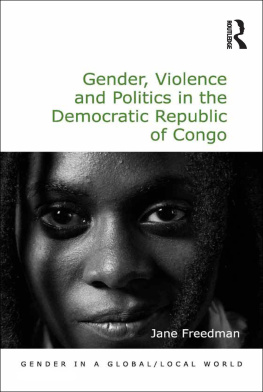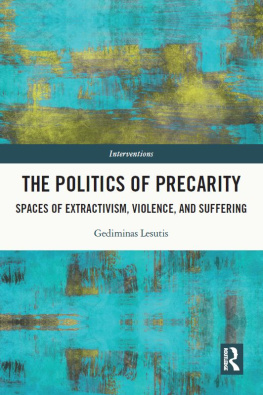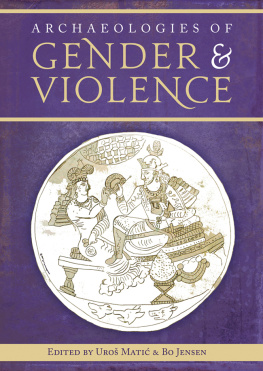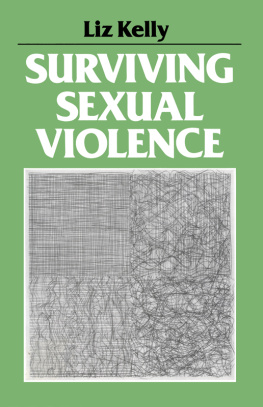Resisting Extractivism
Resisting Extractivism
Peruvian Gold, Everyday Violence, and the Politics of Attention
MICHAEL WILSON BECERRIL
VANDERBILT UNIVERSITY PRESS
Nashville
Copyright 2021 Vanderbilt University Press
All rights reserved
First printing 2021
Material from: Michael S. Wilson Becerril, Frames in Conflict: Discursive Contestation and the Transformation of Resistance, in Civil Resistance and Violent Conflict in Latin America, edited by C. Mouly and E. Hernndez Delgado, published 2019 by Palgrave Macmillan, Cham., reproduced with permission of SNCSC.
Material from , DOI 10.1080/10402659.2016.1130372.
Library of Congress Cataloging-in-Publication Data
Names: Wilson Becerril, Michael, 1988 author.
Title: Resisting extractivism : Peruvian gold, everyday violence, and the politics of attention / Michael Wilson Becerril.
Description: Nashville : Vanderbilt University Press, [2021] | Includes bibliographical references and index.
Identifiers: LCCN 2020039778 (print) | LCCN 2020039779 (ebook) | ISBN 9780826501578 (paperback) | ISBN 9780826501585 (hardcover) | ISBN 9780826501714 (epub) | ISBN 9780826501721 (pdf)
Subjects: LCSH: Gold mines and miningEnvironmental aspectsPeru. | Gold mines and miningMoral and ethical aspectsPeru. | ViolenceEnvironmental aspectsPeru. | EnvironmentalismPolitical aspectsPeru. | Environmental justicePeru. | Social responsibility of businessPeru.
Classification: LCC HD9536.P42 B43 2021 (print) | LCC HD9536.P42 (ebook) | DDC 338.2/7410985dc23
LC record available at https://lccn.loc.gov/2020039778
LC ebook record available at https://lccn.loc.gov/2020039779
No jueguen con el agua! (Dont play with the water!) seemed to be my grandmothers favorite phrase. As children, my cousins and I would collect water in buckets and chase each other around her backyard, aiming for each other but splashing most of the water on the grass and concrete. As a kid, I never fully understood her problem with our games. I used to think she did not want us to catch a cold and get sick, given that her second favorite admonition was Put on a sweater! As I have grown, I have come to understand her message differently: water is not to be wasted.
My grandfather worked up to become head mechanic in a cement mine and factory, which had been established originally as a British company in the 1880s but taken over by its workers (including my great-grandfather) and turned into a cooperative in 1931. Above all, however, my grandparents were farmerstied to their small plot of land by economics, culture, and no doubt, politics. Dark-skinned, rural, and humble, their place in the countrys postcolonial social hierarchy meant they lacked access to formal education (Mexico did not institute public instruction until they were married adults), but they were infinitely wise, colossally funny, and deeply in touch with their land. My mother, their only daughter out of five children, and my father, a half-Mexican immigrant from the US, were hard-working artists and entrepreneurs who spent much of their time in downtown Mexico City, so raising my sister and me fell largely to my grandparents.
This book is dedicated to their memory. For Jos Jess Becerril Bentez, a diligent, quiet, and pensive farmer who taught me to whistle with birds, care for plants, watch the rain, and appreciate the little things that are tragically taken for granted. And for Josefina Garca Cuellar, a matriarch, soccer aficionada, and tireless raconteur who sat on a wheelchair from as early as I can remember until she passed away in 2006 but was never anything remotely close to meek, and who showed me the power of laughter.
Contents
Figures and Tables
TABLES
FIGURES
Acknowledgments
If you are a poet, you will see clearly that there is a cloud floating in this sheet of paper. Without a cloud, there will be no rain; without rain, the trees cannot grow; and without trees, we cannot make paper.... You cannot point out one thing that is not heretime, space, the earth, the rain, the minerals in the soil, the sunshine, the cloud, the river, the heat. Everything co-exists with this sheet of paper.
THCH NHT HANH, The Heart of Understanding, 1988
In any study that relies on extensive fieldwork, the list of people who deserve credit far exceeds the space allotted to dedicatory sections. As the epigraph to this section illustrates, I have everything for which to be thankful. Preparing for, conducting, and writing this research is to the credit of many people who have my eternal gratitude.
This work would not be possible were it not for all the people in Peru whoin parks and restaurants, in their offices and homes, at events and in our various expeditions, and far moreshared a moment with me to discuss their views and experiences. Many people, including those who did not officially participate in this research, generously invited me into their lives and to their proceedings; cared for me when I was sick; ran back to my hostel, after meeting me, to gift me books or show me fascinating media; stayed up late talking with me about politics and society; facilitated my conversations with others; offered me mementos, kind words, and useful advice or materials before we parted ways; and otherwise transformed difficult logistics into unforgettable memories, enduring relationships, and, I hope, useful research. I thank Alicia Abanto, Stphanie Rousseau, Liliana Alzamora, Mirtha Vsquez, Teresa Santilln, Liz Puma, Gerardo Damonte, Nelson Peaherrera, Luis Riofro, Lenin Bazn, Csar Medina Tafur, Luis Villafranca, Nilton Deza, Maritza Paredes, Charito Reyes, Eduardo Dargent, Paula Muoz, Jos Carlos Orihuela, Ximena Waarnars, Vladimir Gil, Silvana Baldovino, Nadia Gamboa, Guillermo Salas, Jos de Echave, Ronald Ordez, Ral Benavides, Javier Torres, Shreema Mehta, Andrew Miller, Martn Estvez, and my good friend Jefree Roldn, among many others. In addition to the people who participated in this study in any small or major way, this book is inspired by and dedicated to all who have struggled for justice and a better future. The world and I owe them incalculably.
Secondly, I was lucky to know and have the support of many mentors. Kent Eaton was, from our earliest conversations, a constant source of light able to guide me out of intellectual uncertainty. Kent unswervingly found potential in my work and opened many doors for me to think about and carry out this research. I also owe infinite thanks to Mark Fathi Massoud, an exemplary instructor and writer without whose encouragement, support, and friendship I would not have survived graduate school; to Eleonora Pasotti, who consistently provided the perfect balance of razor-sharp criticism and enlivening reassurance that every apprentice craves; and to Jeffrey Bury, whose field expertise, contacts, and advice were essential to this research. These four people were kinder, more caring, sharper, and wiser mentors and role models than I could have imagined. They always surpassed my hopes and needs as their student. I am immeasurably grateful for their generosity, grace, inspiration, and empowerment. Despite being always busy, they read and improved countless poorly written drafts, wrote letters on my behalf even when I requested an excessive number, and vastly improved who I am personally and professionally.
Likewise, I am grateful for the mentorship of Nancy Ries, Megan Thomas, Sylvanna Falcn, Hiroshi Fukurai, Ben Read, Ronnie Lipschutz, Cecilia Rivas, Ana Mara Seara, Xan Karn, Andrew Rotter, and many other faculty and staff at UCSC and Colgate University, and for the support from colleagues and friends, especially Mario Avalos, Earl Hidayetolu, Andrei Tcacenco, Stephanie Montgomery, Sam Cook, Cassie Ambutter, Alfredo Reyes, Edher Zamudio, Karina Hurtado, Ingy Higazy, Dlio Vzquez, John Wang, Sophie Rollins, Randy Villegas, Aaron Augsburger, Estel Jimnez-Soto, Rafael Delgadillo, Logan Puck, Augusta Alexander, and Anna Ros Rojas. And I want to inscribe here a very special thanks to all of my students at UCSC, its Pathways to Research mentorship program, and Colgate Universityhundreds of people who unflinchingly brightened my day, sharpened my thinking, and inspired my commitments.







